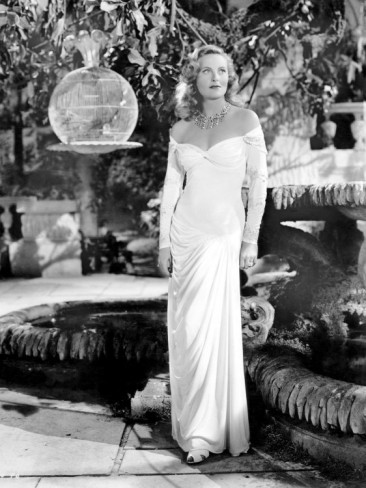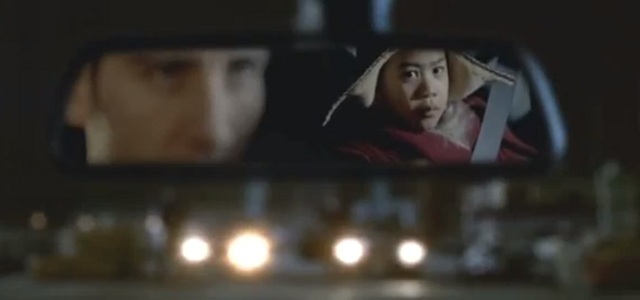The Chase
Written by Philip Yordan
Directed by Arthur Ripley
U.S.A., 1946
*A fair warning to readers: those sensitive to spoilers had best watch the film under review before reading the article. To properly dive into its themes and story, major plot points will be revealed.
Surprises in movies are a great gift the storytellers can offer viewers to wake them from the state of comfort, or boredom depending whom one asks, which sets in when plot points are too familiar and the dramatic beats too predictable. For some it can be a chore to get through just as it may offer the right type of simple escapism for others. Sometimes, however, the ingredients need be shaken and stirred. In an amusing case of coincidence, this week’s column entry, the 1946 film The Chase, arrives only weeks after Steven Soderbergh’s supposed final theatrical feature, Side Effects, opened in theatres. The latter begins with a story which, while perfectly adequate and engaging, morphs into different beast altogether at a one critical moment. Unsuspecting viewers who take a chance with this Arthur Ripley directed noir are in for a surprise of equal magnitude.
Chuck Scott (Robert Cummings) is an WWII veteran roaming the streets of downtown Miami. He has served his country well during the war, yet his financial situation is rough to say the least. Upon observing through a restaurant window a cook prepare wonderfully looking beat patties he takes notice of the wallet at his feet. Picking it up and snooping inside he discovers a hefty amount of cold hard cash. He opts to pay himself a swell breakfast before returning the object to its rightful own, the name of address of which is on a small card in one of the pockets. It turns out the individual concerned, one Eddie Roman (Steve Cochrane), is a filthy rich gangster living in a grand palace none too far away. Always accompanied by his right hand man Gino, Peter Lorre), Eddie is impressed by Chuck’s honesty for having delivered his lost wallet personally and gives him a job as a chauffeur. Just as things are settling in nicely for Chuck, his employer’s depressed and suicidal wife, Lorna (Michèle Morgan) offers him the chance to run away to Cuba. From there on things get quite complicated, although not always for the reasons some viewers might suspect.
Movies cut from the same cloth as The Chase are always fun to decipher and analyze, even those which fail to pay full dividends on its twists and turns, as is also the case with the film currently under review. It seems as though many films, especially in modern cinema, try far too desperately to shock and awe audiences with sudden twists which ultimately carry little weight in the grander scheme of the plot. They are, to put it bluntly, twists for the sake of twists and nothing more. Then there are films such as Side Effects and The Chase, which totally pull the rug from under the audience’s feat by venturing into territory completely unforeseen. A viewer believes for perfectly understandable reasons they are watching a film that falls under category ‘A’, only for its true nature to be unexpectedly revealed. Of course, in order to properly pull off this sort of a stunt, the movie naturally has to sustain enough dramatic heft. The twist on its own is insufficient. The Chase nearly succeeds in this respect, falling just short of concluding its story with the perfect climax. Nevertheless, the effort is well worth discovering this small yet creative film. From this point onward, the review shall delve into spoilers.
Things start off well enough, with a story about a down on his luck yet all around decent man falling prey to the desperate need to make any money he can and therefore accepting a job from a very nasty person. Robert Cummings is not an actor who ever went down in movie history as one of the greats, yet his performances are always very engaging. Here, as Chuck, his naturally affable manners come though vividly. His honesty is commendable, yet it brings him to a gangster’s doorstep. It is very easy to cheer Chuck on in his attempt to escort Lorna to safety in Cuba, and considering his experience as a war veteran, it is not difficult to accept his character as a brave individual. Bravery and honesty are admirable qualities, yet they can still get one in trouble, and as Chuck himself explains upon meeting Eddie for the first time, he is just ‘a sucker.’ In this case, he is a sucker for money and for love. Michèle Morgan is very believable as the desperate and depressed Lorna. Eddie has kept her on the tightest leash imaginable for three years, suffocating her as a person. Her desire for escape narrowly outweighs the fear of the risks she incurs by fleeing her nefarious husband. Morgan is also very sensual in her more tender scenes with her male costar, which helps the viewer fall for their relationship. Their high calibre performances prove crucial considering that the script is somewhat inadequate in elaborating on what the time frame is for the chain of events that take them to Cuba and have them fall in love. Strictly in terms of running length, only about 20 minutes have passed since their first scene together and when they admit their passions for one another. Steve Cochrane plays Eddie Roman as a mighty cool cat with a very mean streak. In fact, one could argue he underplays the role even. No temper tantrums or eruptions of rage, just quiet, calculated moves to always gain the upper hand or teach someone some manners. Peter Lorre is similar in how his character nearly seems aloof most of the time to what is going on, yet is also capable of communicating a quiet malice.
It is once Chuck and Lorna make it to Havana that the picture makes some dramatic moves, practically turning The Chase into a Twilight Zone episode. Just as he and Lorna are dancing romantically at a nightclub, one of Eddie’s Cuban henchmen somehow murders her with a knife to the back. The leading lady drops dead halfway into the story. The local police only see Chuck as the most likely suspect, which has the movie turn into, for a while at least, a drama about a man wrongfully accused of murder fleeing the authorities. There is some very good tension in this portion, much of it deriving from the fact that there is evidently a ploy against the protagonist, with none other than Eddie pulling the strings all the way from Florida. No matter his pleas, false evidence piles up to make him appear all the guiltier.
As amusing as this portion of the story is, it does not last for the remainder of the running time, for once Chuck, after slipping through the police’s fingers, appears to have stumbled on evidence to prove his innocence…he wakes him in the room where he has been staying since working for Eddie. It was all an intensely vivid dream. It turns out Chuck needs medication to suppress severe anxiety and stress due to wartime trauma. The tiniest of hints was indeed dropped very early in the film, although kudos to anyone who correctly guesses the ebb and flow of this film even with that knowledge in mind. Ultimately, the film ends up being not only a love story between a pampered but oppressed woman and a good man, but one that relates to the condition of all too many returning war veterans who must wrestle against the intangible demons of warfare, plagued by psychological and emotional turmoil inconceivable to anybody who has not had the misfortune of engaging in what soldiers have. Noir itself, in more ways than one, often tackles the issues of American society in the waning years of the second World War and the decade that followed. The cynicism, bitterness, sadness and frustration that actually existed in society overshadowed many people’s views of what the fabled America was like. The real, darker world settled in and noir presented as an exaggerated (and in some respects not so exaggerated) cinematic translation of the resulting anxieties. The Chase is a more literal version in that its protagonist is actually suffering from postwar trauma, all the while offering an unreliable dreamlike evolution of its story. Sadly, the climax is disappointing if only because Chuck suddenly becomes a far more passive character, a strange decision considering how active he was leading up until then.
Faulty climax notwithstanding, The Chase is a very adventurous effort from director Arthur Ripley. It is next to impossible to guess what comes next. The thrill of the unexpected is almost enough to carry the film all the way through on its own, but that would be taking credit away from the fine cast and the effective tension the director builds throughout. Even compared to some of the wilder noir entries, The Chase is definitely a unique specimen.
-Edgar Chaput









